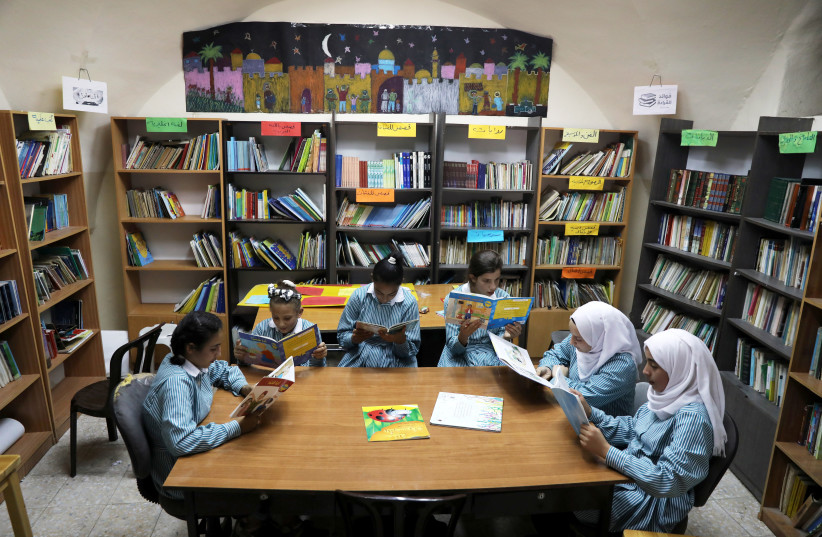It was almost too good to be true. In a sensitive process, the city’s education system (Manhi) managed to encourage a growing number of school staff in the city’s east sector to join the Israeli curriculum and the Israeli matriculation.
The feeling was that the move is welcomed by parents and teachers, who see many advantages in choosing the Israeli program, as it guarantees continued studies in higher education institutions in Israel and, subsequently, good employment opportunities. The fact that at no point did they force the transition on any educational institution but offered it alongside the existing [Palestinian] program, helped parents to choose freely for the benefit of their children.
However, it seems that this move is endangered, as last week 70,000 (out of the 177,000 in the city’s Arab sector) students did not attend school, as their parents announced a strike. Officially, the strike was launched in protest of the municipality’s intention to change the content of the textbooks to so remove “seditious passages” as defined by the Education Ministry. The ministry threatened last month to revoke the licenses of six schools if the inappropriate content was not removed from the curriculum.
Adopting the Israeli curriculum in east Jerusalem schools
In recent years, the number of schools in eastern Jerusalem that adopt the Israeli curriculum has soared. Their number is estimated at 16,000 students, compared to 5,000 five years ago. In total, about 14% of the schools in eastern Jerusalem teach according to the Israeli curriculum. It should be noted that at the direction of the ministry, the books were edited by the Education Administration in the Jerusalem Municipality and reprinted. The topics that the Ministry of Education ordered to be removed include glorification of prisoners and their armed struggle in the State of Israel and false claims about withholding treatment of patients and intentional harm to Arab medical staff.
But the problem is more than the changes introduced to the books, or at least it is not the main reason. The increasing number of parents accepting the offer to transfer their children to the Israeli program caused concern and even outrage among activists of Palestinian organizations from across the political spectrum. The increase in the number of students in the Israeli program in east Jerusalem raises questions of identity, which thus far has been handled in a low profile when the question of the welfare of the students remained the main issue. With the demand of the Ministry of Education, a golden opportunity was created for activists of Palestinian organizations to claim that the real goal of the State of Israel (with the cooperating municipality) was not the welfare of the Palestinian students but a plan to eradicate their Palestinian identity.

According to a report last year report by the Israel Democracy Institute, about 43% of the NIS 445 million allocated to the field of education in the five-year plan for the development of east Jerusalem is conditional on studying the Israeli plan, a claim that Manhi rejects. At Ir Amim, a left-wing NGO, the growing move of Palestinian students to the Israeli program is seen as “a bias due to foreign political considerations that deny the collective identity of the Palestinian children in eastern Jerusalem, from which no other educational program will displace them.”
For now, the parents and the students are torn between the desire to improve the students’ educational level and the political context. The major question is how the municipality’s education administration will operate. At Safra Square, there is an understanding that the protest and strike are not really aimed at the transition to the Israeli program per se but rather at the fear of erasing the Palestinian identity through the changes in the textbooks required by the Ministry of Education. The demand, by the way, is based on the UNESCO Convention due to the words of incitement. What really worries the parents is how to navigate between the desire to benefit their children’s future and the fear of being accused of collaborating with the “occupation.” ❖
